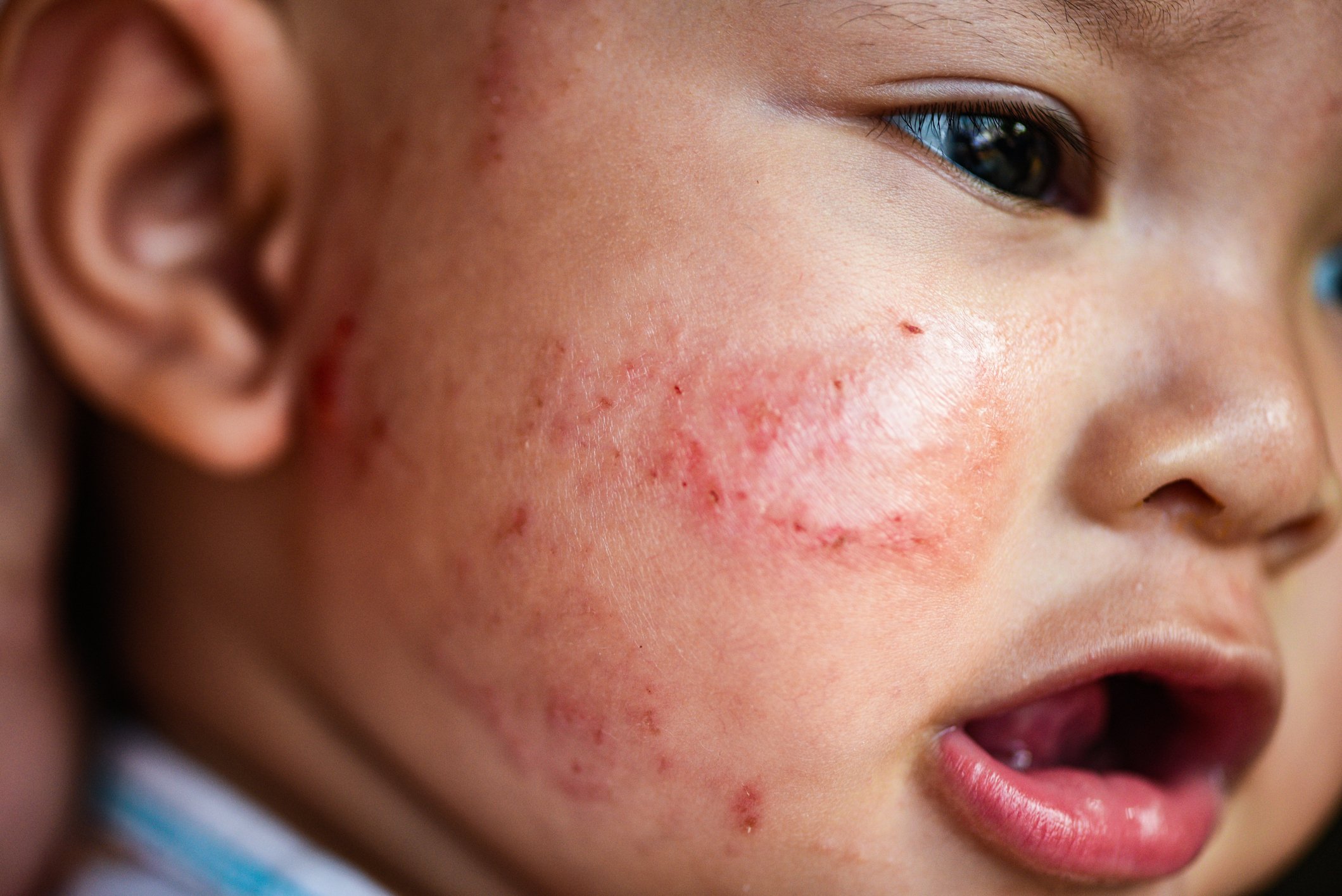
What are the symptoms of eczema ?
Atopic eczema causes areas of skin to become itchy, dry, cracked and sore.
Eczema is a chronic condition and can affect patients at any age.
Some patients with childhood eczema see a resolution of their symptoms as they grow older and their immune system matures and changes with time. Other patients can see their symptoms fluctuate in intensity over time often coinciding with various physiological and emotional stressors placed on their immune system as they grow and develop. Many patients struggle with eczema throughout the whole of their lives.
Atopic eczema can affect any part of the body but is especially prominent over the hands, feet, creases, face and scalp in children.
The severity of eczema and it’s associated flares can vary between patients and throughout the stages of a patient’s life. Many patient’s suffer with the following symptoms:
The skin can become dry, inflamed, red and itchy.
The skin can crack, peel and flake.
Eczema patches can be painful and sore.
The skin may ooze, bleed and can become infected.
The itching associated with eczema can lead to uncontrollable scratching. This often has a knock-on effect leading to poor sleep, exhaustion, poor concentration , development delays and failure to thrive. The itching associated with eczema only settles once the eczema has been brought under control. Anti-histamines often have a limited impact in terms of controlling eczema related itch.
Eczema has a massive impact not only on physical aspects of a patient’s health but also mental wellbeing. It is often underestimated how much eczema affects a patient’s self confidence, mood and overall mental health. It not only impacts the patient but also those that love and care for them as well.
Areas of skin affected by eczema may also turn temporarily darker or lighter after the condition has improved. This is a result of the post-inflammatory response.
